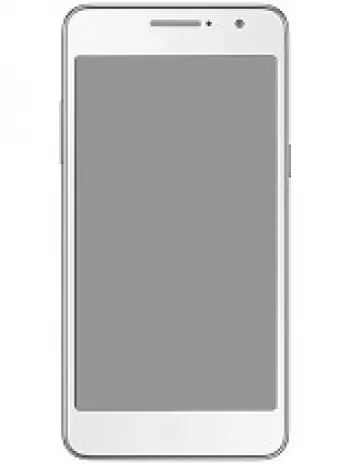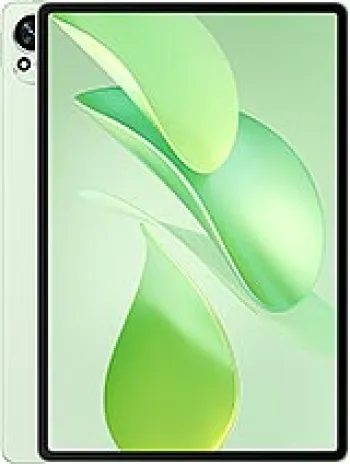
Overview of Huawei T8300
The Huawei T8300, a device from the year 2011, represents a blend of modest technology and essential smartphone features aimed at offering basic usability in the early smartphone era. Known for its durability and simple interface, the device attracted a fair number of users looking for value for money and straightforward functionality.
Design and Build
The Huawei T8300 features a compact design with dimensions of 110 x 56.5 x 11.2 mm and a weight of just 104 grams. These dimensions make it quite portable and easy to handle. The device sports a classic black color, aligning with the typical design aesthetics of that period. Its build incorporates a mini-SIM slot which supports easy swapping of SIM cards.
Display
The device is equipped with a 3.2-inch TFT display, having a resolution of 320 x 480 pixels. While the screen-to-body ratio stands at approximately 49.1%, it provides users with enough display real estate for basic smartphone activities like browsing and messaging. The pixel density of about 180 ppi, though considered low by modern standards, was typical for devices of its time, providing clear enough visuals for everyday use.
Platform and Performance
Running on Android-based OPhone 2.5, the Huawei T8300 is integrated with a Marvell 88sv331 chipset and an 800 MHz CPU. These specifications cater to essential smartphone operations such as calling, messaging, and using basic applications. The performance aligns with the device's placement as an entry-level smartphone aimed at users in need of an uncomplicated user experience.
Memory and Storage
Internally, the smartphone houses 512MB of storage paired with 512MB of RAM, a standard specification for models at that time. The presence of a dedicated microSDHC slot allows for storage expansion, a crucial feature for users looking to store more media and applications than the internal memory could allow.
Camera Capabilities
The rear camera is a 3.15 MP single sensor capable of shooting video at 480p. It represents basic photographic capabilities suitable for capturing everyday moments. The device also includes a VGA front camera that offers very basic functionality for selfies and video calls.
Battery and Power
The Huawei T8300 is powered by a removable Li-Ion 1200 mAh battery, delivering adequate battery life for a device of its time. Users could easily replace the battery, which is a feature often appreciated for prolonging device usage when the original battery's performance declines.
Connectivity and Communication
In terms of network capabilities, the T8300 supports GSM technology with compatibility for GSM 900 / 1800 / 1900 2G bands and TD-SCDMA 3G bands, offering a level of connectivity sufficient for basic communication needs. The device supports HSPA speeds, ensuring a viable option for internet browsing where available. Additionally, it features WLAN Wi-Fi 802.11 b/g, Bluetooth 2.1 with A2DP and EDR, GPS with A-GPS support, and a stereo FM radio. It also includes a microUSB 2.0 port for data transfer and charging.
Audio and Multimedia
The audio capabilities are sufficiently met by the inclusion of a loudspeaker and a 3.5mm headphone jack, facilitating both hands-free conversations and media consumption. Users can enjoy music either through headphones or directly via the built-in loudspeaker, coupled with the integrated FM radio.
Sensors and Additional Features
The T8300 comes equipped with a basic set of sensors including an accelerometer, proximity sensor, and compass. These sensors facilitate necessary functionalities like auto-rotate for the screen, proximity detection to turn off the display when on calls, and a compass for basic directional assistance.
Conclusion
The Huawei T8300 was introduced as an affordable option for users during its time, equipped with features that offered utility without the complexities of advanced smartphones. Though it may appear outdated compared to contemporary smartphones, it represents a key phase in the evolution of mobile technology focused on accessibility and affordability.
Key Features of Huawei T8300
- TFT Display: 3.2 inches with a resolution of 320 x 480 pixels
- Operating System: Android-based OPhone 2.5
- Chipset: Marvell 88sv331
- Processor: 800 MHz
- Expandable Storage: microSDHC card slot
- Main Camera: 3.15 MP with 480p video capability
- Selfie Camera: VGA
- Connectivity: Wi-Fi 802.11 b/g, Bluetooth 2.1 with A2DP, EDR, GPS, A-GPS
- Radio: Stereo FM radio
- Battery: Removable Li-Ion 1200 mAh
- Sensors: Accelerometer, Proximity sensor, Compass
- Audio: Loudspeaker and 3.5mm audio jack
Huawei T8300 Drawbacks
- Discontinued model, which may result in limited support and updates.
- Uses outdated 3G TD-SCDMA technology, not supporting modern 4G or 5G networks.
- Low-resolution display with 320 x 480 pixels and ~180 ppi density.
- Weak processing power with an 800 MHz CPU.
- Limited internal memory of 512MB RAM, which may affect performance.
- Basic camera features with a single 3.15 MP main camera and VGA selfie camera.
- Small battery capacity with a 1200 mAh removable battery.
- Runs on Android-based OPhone 2.5, which is an obsolete operating system.
- Old Bluetooth version 2.1, lacking modern features and efficiency.

View Also
More Phones
All Rights Reserved +14268 Phones © Mobilawy 2025

























